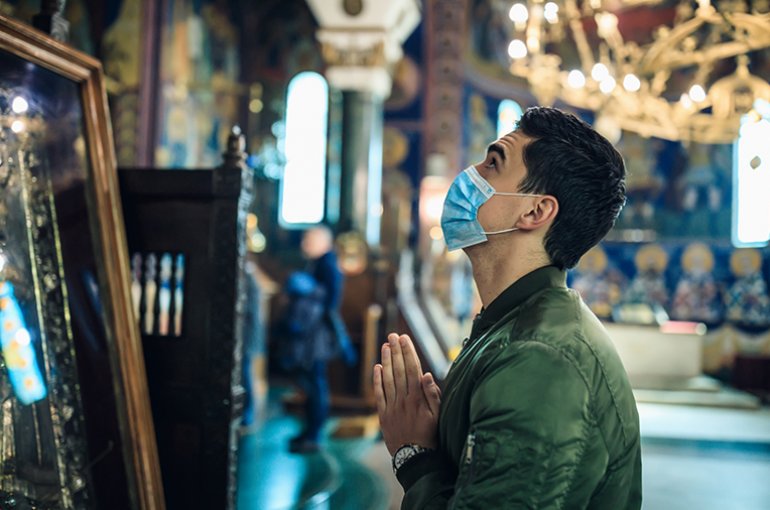Corona: between conspiracy theories and confronting reality

Dr Joas Wagemakers (Religious Studies) wrote this blog for Dossier Corona, introduced by Religious Matters in the spring of 2020.
The Coronavirus that has struck much of the world has claimed hundreds of thousands of lives and has affected many more through infections and the economic, psychological and societal effects these have had. In a very real sense, we have all been affected by this virus and it should therefore not come as a surprise that religious people are no exception to this.
Reflecting on life
At times like these, people are confronted with suffering and even death on a scale that clearly surpasses usual levels and this often has the effect of causing people to reflect on their lives, leading some to seek comfort in religion, although the social distancing measures that governments across the world have taken to combat the virus have often compelled people to do so in ways that are quite unusual.
Conspiracy theories
Some seek refuge elsewhere, however, and resort to conspiracy theories to explain the extraordinary circumstances that they are going through. Although suspicions of evil plots are obviously much older than Covid-19, the crisis caused by the Coronavirus seems to have given rise to more conspiracy theories than usual, perhaps particularly because the enemy we are fighting right now is invisible to the naked eye.
Concrete enemies
Given the fact that there is a host of more concrete “enemies” whose supposedly evil plans have frequently been alluded to by earlier generations of conspiracy theorists, some clearly cannot resist the tempation of blaming entirely unconnected groups of people for a crisis that even experts struggle to understand.

